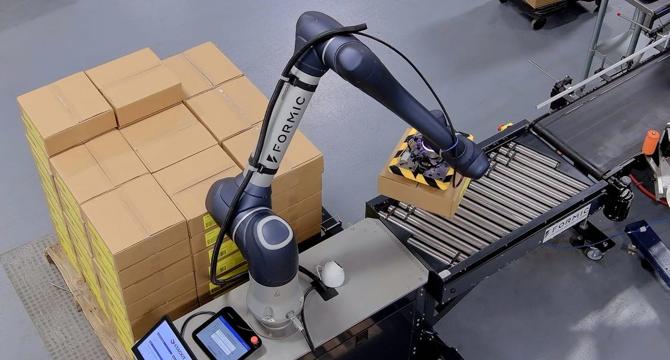Insider
1M
49

Image Credit: Insider
Trump's tariffs are putting the robots to work
- Formic, an automation company, has seen increased demand for robots due to the uncertainty created by Trump's trade war and tariff announcements.
- Formic operates on a 'robots-as-a-service' model, leasing robots to companies based on their usage.
- Between January and February, Formic's customers increased robot usage by more than 17% overall.
- The spike in robot usage was likely due to companies aiming to mitigate potential tariff-related price increases.
- Formic's customers include various industries like automotive, industrial, food, beverage, and consumer goods.
- Automation helps provide cost predictability for companies amidst trade uncertainties.
- Rumiano Cheese Company, facing tariff threats, is adopting automation solutions like Formic's robots to improve efficiency.
- The use of robots and AI tools is increasing in companies like Rumiano to optimize supply chain efficiency and save costs.
- Commerce Secretary Howard Lutnick suggested a surge in training for robotics and high-tech factories in response to trade wars and supply chain challenges.
- Automation is seen as a solution to bridge gaps in supply chains and improve adaptability and resilience in manufacturing.
Read Full Article
3 Likes
For uninterrupted reading, download the app